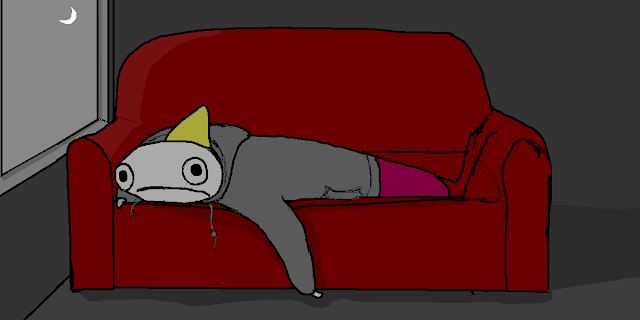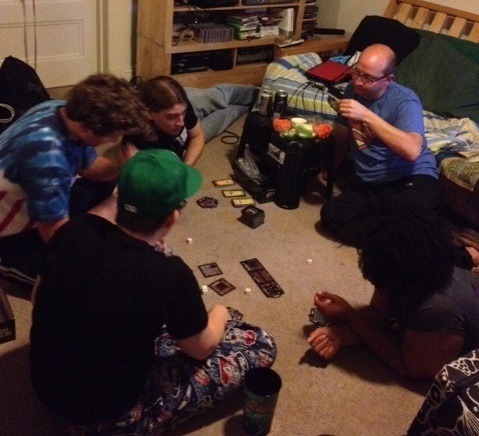Originally published at: https://geektherapy.org/breaking-the-depression-cycle-one-turn-at-a-time/
Time for a little bit of self-disclosure. I know, I know, in the therapy world self-disclosure is something that is looked down upon in many circles. It’s ok though! None of you reading this are my clients, and if any of my clients, or future clients, care enough to hunt me down on the internet, I hope whatever they find is useful to them. Personally, I find a little bit of self-disclosure comforting and healing.
My intent here is to be real, honest, and helpful. Not to damage any potential therapeutic relationships.
Now that I have properly disclaimer-ed myself…on to the real topic:
Depression can be debilitating at times. You feel like the world is a bad place, you’re a bad person, nothing will change it, and you just want to lay in bed and do nothing. So you do.
Throw anxiety into the mix and then you’re worried about the fact that you should be doing something, that something bad is going to happen because you aren’t doing something, and the overwhelming sense of doom immobilizes you even more.
Then the depression reminds you how bad of a person you are for not doing anything.
Your mind forces you into lockdown.

(Image by Allie Brosh via Hyperbole and a Half)
I know this, because from time to time, I find myself in a place just like that. Incidents like this are much fewer and far between, but they do happen still. All those awesome things I get excited about? Yeah…they get pushed out of view until the depression/anxiety cycle ends.
That cycle can go on for a long time (or for what seems like forever), unless something derails it.
For me, many of the times, it’s games that are the switch point.
Not necessarily video games (although, sometimes this is the case). Mostly, board games are what really help. In particular, the social component of board games are the key.
Here’s an example: I was in one of those debilitating, helplessness inducing funks a few months ago. I would not get off of the couch. Anything my fiance suggested would receive a grumbled “no” in response. And she suggested some awesome stuff…video games, movies, comics to read, going for a walk in the neighborhood. Nothing sounded enticing to me.
Finally, she forced me to text my friend to come over and play some board games we had just bought. I did, and he was at my place in less than half an hour (it takes little to convince him to come play games).
The amazing thing was, I pretty much instantly started to feel better. I was laughing, and smiling, and trying to win, whereas an hour earlier I couldn’t even picture those things happening. The games we played forced me to be social, and forced me out of the seemingly endless cycle of “I don’t want to be doing anything/You should be doing something/You’re bad for not doing anything”.

I have other friends with the same issues with depression. They use gaming (both video games and board games) to prevent the depression from sinking in, and also to fight their way out of it.
I think the main reason that this works (at least for me) is that it forces me to be social and converse about something that isn’t how miserable I feel. Much like a paramedic asking questions to distract their patient from the pain they’re feeling, having to explain a game or talk about setting up a game forces someone to ignore the depression and anxiety.
Once the distraction has set in, then the act of playing the game can help alleviate the emotional distress itself. Kind of like the pain killers given to the distracted patient in the earlier analogy.
Regardless of how it works, it works. I may need a little nudging to get me moving toward having friends over for games, but it definitely makes it easier to work through the depression and anxiety.
People who suffer from depression often times don’t find their normal interests enjoyable. As clinicians, perhaps we should be trying to find ways to make those interests more palatable during a depressive episode. Because often times a person’s interests can help them feel better, if they can get past the feelings of stagnation and disinterest.
Perhaps even playing games with a client during a session might help them pull out of a funk.
So the next time your client (or you, yourself) are feeling down…if gaming is usually something they find enjoyable, pull out a copy of a game they like and see if it helps. It can’t hurt…and it’ll probably be fun.
I bet it’ll make a difference, too.